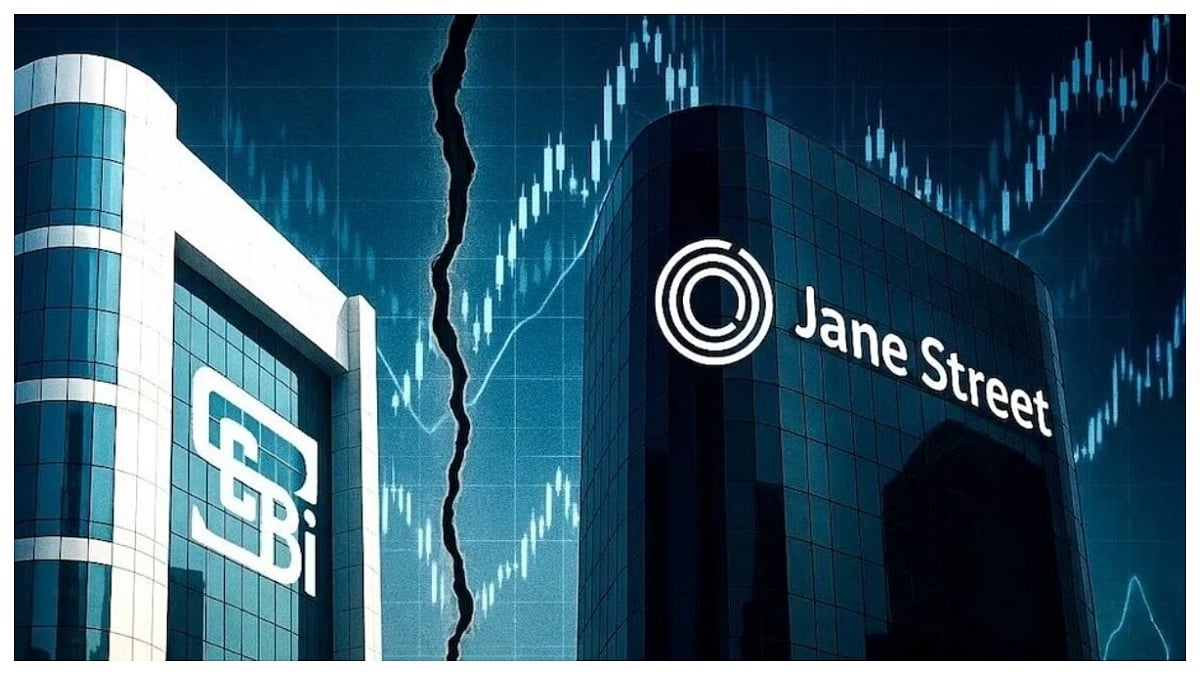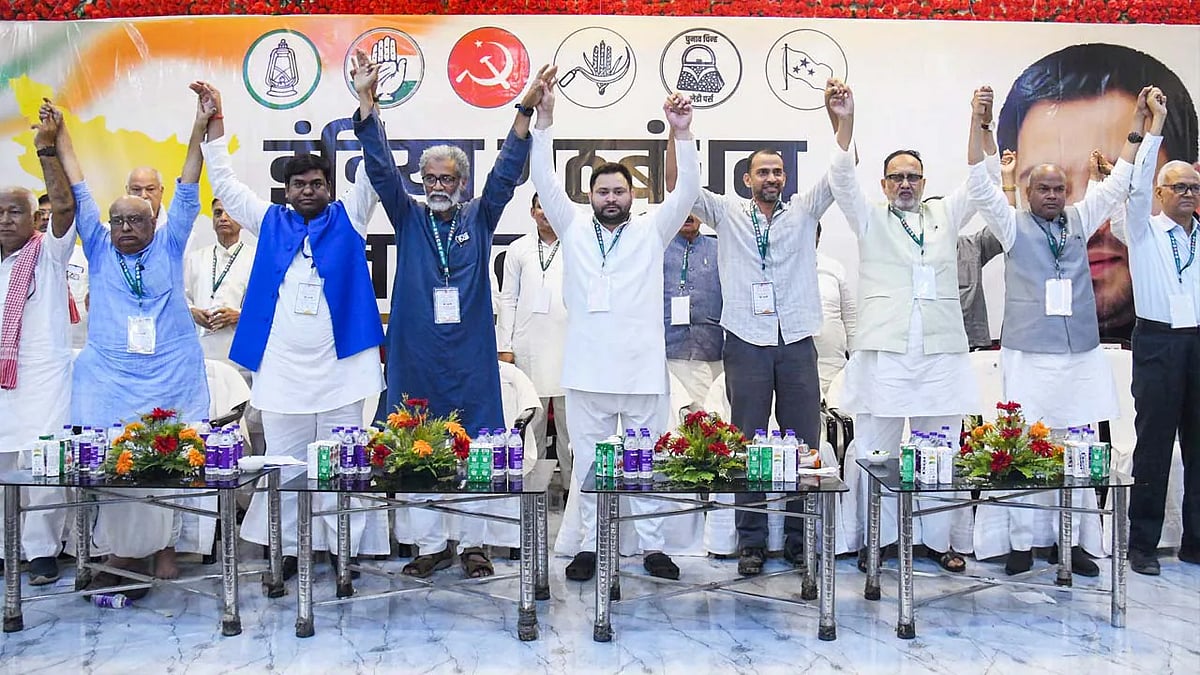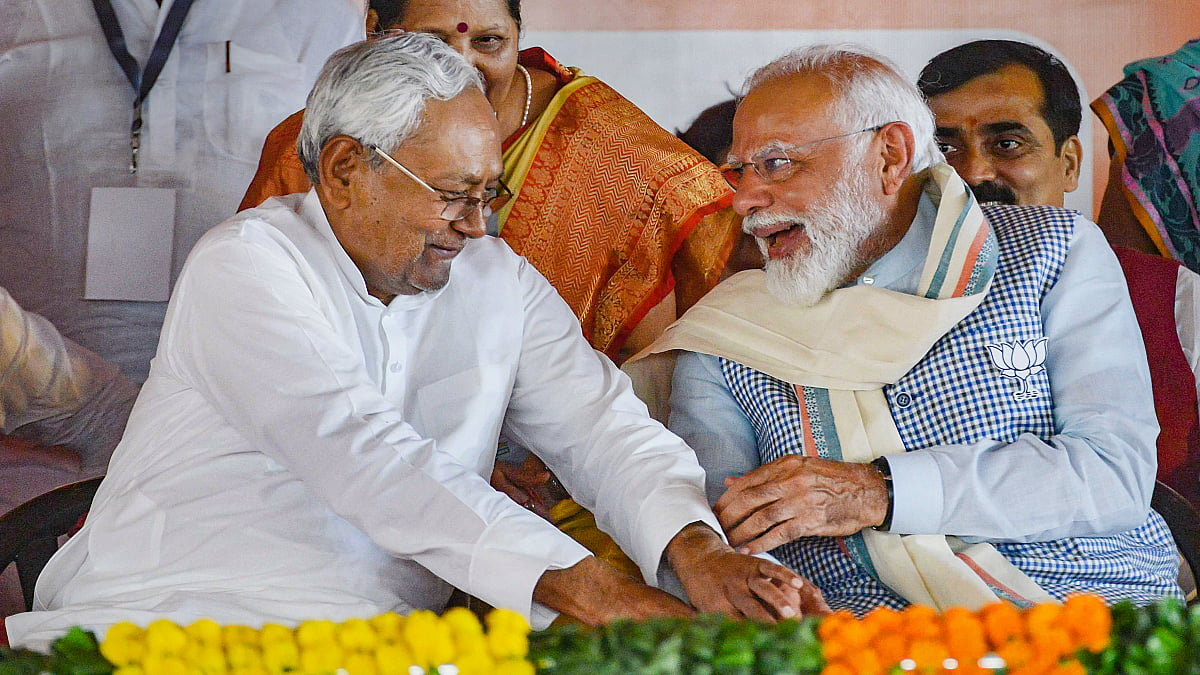The Supreme Court's intervention in the ongoing agitation against the Farm Acts, 2020, smacks of judicial overreach, but to do their lordships justice, cutting the Gordian knot called for proactive, if unorthodox measures. The Centre's failure to resolve the impasse and the protesters' refusal to negotiate threatened prolonged civil unrest.
From Day 1, the protesters have resisted a “clause-by-clause” discussion to plug loopholes in the new laws. The appointment of an expert committee by the apex court to examine the laws will do just that. The farmers' organisations now face a Hobson's choice: they can either place their concerns before the panel, or lose the moral high ground.
The agitating farmers have two problems with the SC ruling: first, they object to the involvement of the court in what they deem a purely 'policy' matter. Second, they reject the apex court-appointed panel, on the ground that all the members are known to be supporters of the Farm Acts, 2020.
Fear and distrust
In terms of judicial scrutiny, the only point of law in dispute is whether commerce in agricultural produce is the exclusive preserve of the state, or whether it falls within the purview of the Centre's powers to regulate inter-state commerce. But the constitutional validity of the new laws is not of concern to the protesters. Their objections are founded in the fear that agricultural reforms will, in the long term, remove a safety net on which a section of farmers in Punjab and Haryana have come to depend. The fear is compounded by an abiding distrust of both State and Centre.
As for their rejection of the two ‘experts’ on the panel, to be fair, it is very hard to find a reputable economist opposed to agricultural reforms. Several, like Swaminathan S Anklesaria Aiyar, Arvind Panagariya and Ashok Gulati (who is on the panel), are very much on board. Even Kaushik Basu, formerly adviser to the UPA government, who condemned the new laws as pro-corporate, simultaneously asserted that liberalisation of agricultural markets is needed. Former RBI Governor Raghuram Rajan agreed, with the caveat that “useful institutions that help the farmer” - that is, the MSP (minimum support price) system - should continue. The Centre has already promised that it will.
Nor are agricultural economists likely to back the farmers' demand for a law that mandates a minimum support price (MSP) for all agricultural produce. First of all, given the variety of crops grown in India, fixing different MSPs based on quality standards for all kinds of produce would be a mind-boggling exercise. Secondly, enforcing MSPs on hapless traders across the country is self-defeating in terms of boosting farm incomes, as farmers might be unable to find buyers.
No protesters on panel
The two other members of the panel represent farmers’ organisations which are not opposed to the spirit of agricultural reforms, although they do want amendments, as the laws in their current form are admittedly flawed. The apex court could well have looked for panel members among the protesters, but the latter have made it clear that they have no desire to negotiate or discuss amendments. “We don’t wish to have clause-wise discussions. We simply want a repeal of the new farm laws,” said Rajesh Tikait, spokesperson of the Bharatiya Kisan Union (BKU). This defeats the purpose of the panel.
Even if the Centre were to agree to repeal the laws altogether, it would simply bring in new legislations with the same intent: to liberalise agricultural markets. Apart from being a waste of effort, that would be counter-productive, as a rollback might spark a million mutinies. Instead of contesting controversial legislations (such as the recent religious conversion or 'love jihad' laws) in the apex court, blocking highways would become the preferred mode of protest. That can only serve to further weaken institutions.
That the protesters represent only a section of farmers is obvious to the public. What one farmer sees as financial ruin, another sees as financial freedom. Yogendra Yadav, leader of the Kisan Andolan, had claimed that no farmers’ organisation supported the new farm laws. That is obviously untrue, as several have done so. Even the Bharatiya Kisan Sangh (BKS), an RSS frontal, has done a volte face and come out in support, after necessary amendments were promised.
Farmers’ organisations can choose to oppose the court-appointed panel, or use the opportunity to achieve desirable objectives, such as institutionalised safeguards against alienation from land and emergence of monopolies. A refusal to engage can only turn the tide of public opinion against them.
The writer is a senior journalist with 35 years of experience in working with major newspapers and magazines. She is now an independent writer and author.



.jpg)






